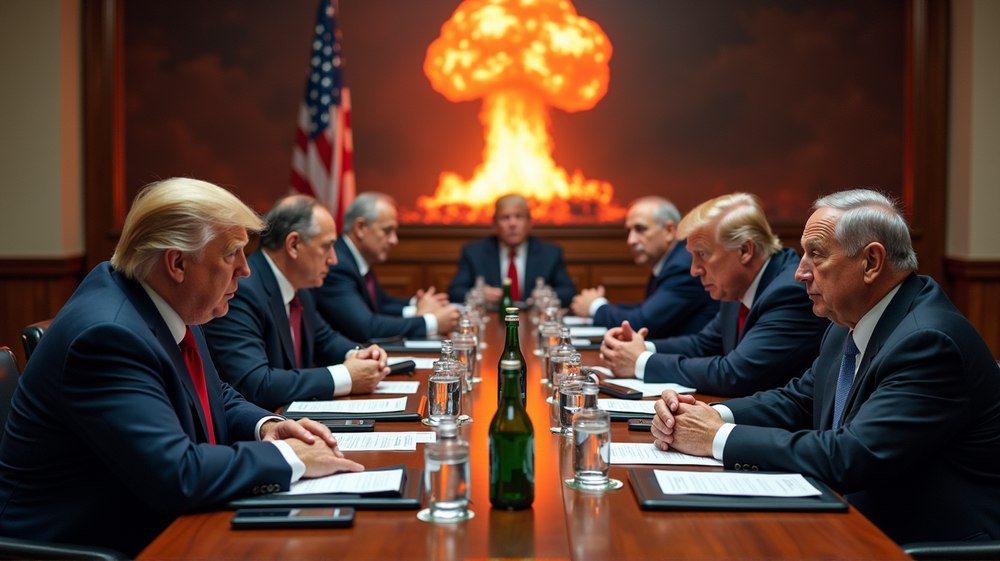In a dramatic twist in the geopolitical landscape, former President Donald Trump has issued a stark warning to Tehran amid growing concerns over Iran’s nuclear ambitions. “The United States must remain vigilant,” Trump asserted, emphasizing the urgency of moving US personnel out of Iraq due to the escalating threat levels in the region.
Iran’s Nuclear Non-Compliance: A 20-Year First
The International Atomic Energy Agency (IAEA) has formally declared that Iran is not meeting its nuclear obligations for the first time in two decades. Nineteen member countries voted in favor of a critical resolution, pressing Iran to clarify the presence of uranium traces at undisclosed sites. This development hints at escalating diplomatic tensions that could result in the re-imposition of sanctions on Tehran later this year.
Israel’s Calculated Stance
Amid these developments, Israeli Prime Minister Benjamin Netanyahu is reportedly contemplating military options against Iran. This potential approach underlines the gravity of the current nuclear stalemate and signifies the lengths that countries might be willing to go to ensure regional stability.
A Divided Global Response
The response to the IAEA resolution has been far from unanimous. While a significant portion of the board supported the decision, countries like Russia, China, and Burkina Faso opposed it. Meanwhile, eleven nations abstained, showcasing the complex, multi-faceted nature of international relations tied to nuclear diplomacy.
Preparing for the Unpredictable
As tensions simmer, the US is taking precautious steps to safeguard its interests, specifically by relocating personnel from Iraq—a territory now described as ‘a dangerous place’ by the former president. These moves are a part of a broader strategy to de-escalate potential threats while maintaining diplomatic dialogues.
Conclusion
The potential for conflict remains a pressing concern as world leaders navigate this intricate web of nuclear diplomacy. According to The Independent, it is pivotal for all parties involved to prioritize dialogue and diplomatic solutions to avert a potential crisis in the volatile Middle East region. The international community watches closely as the next phases of action and negotiation unfold.












